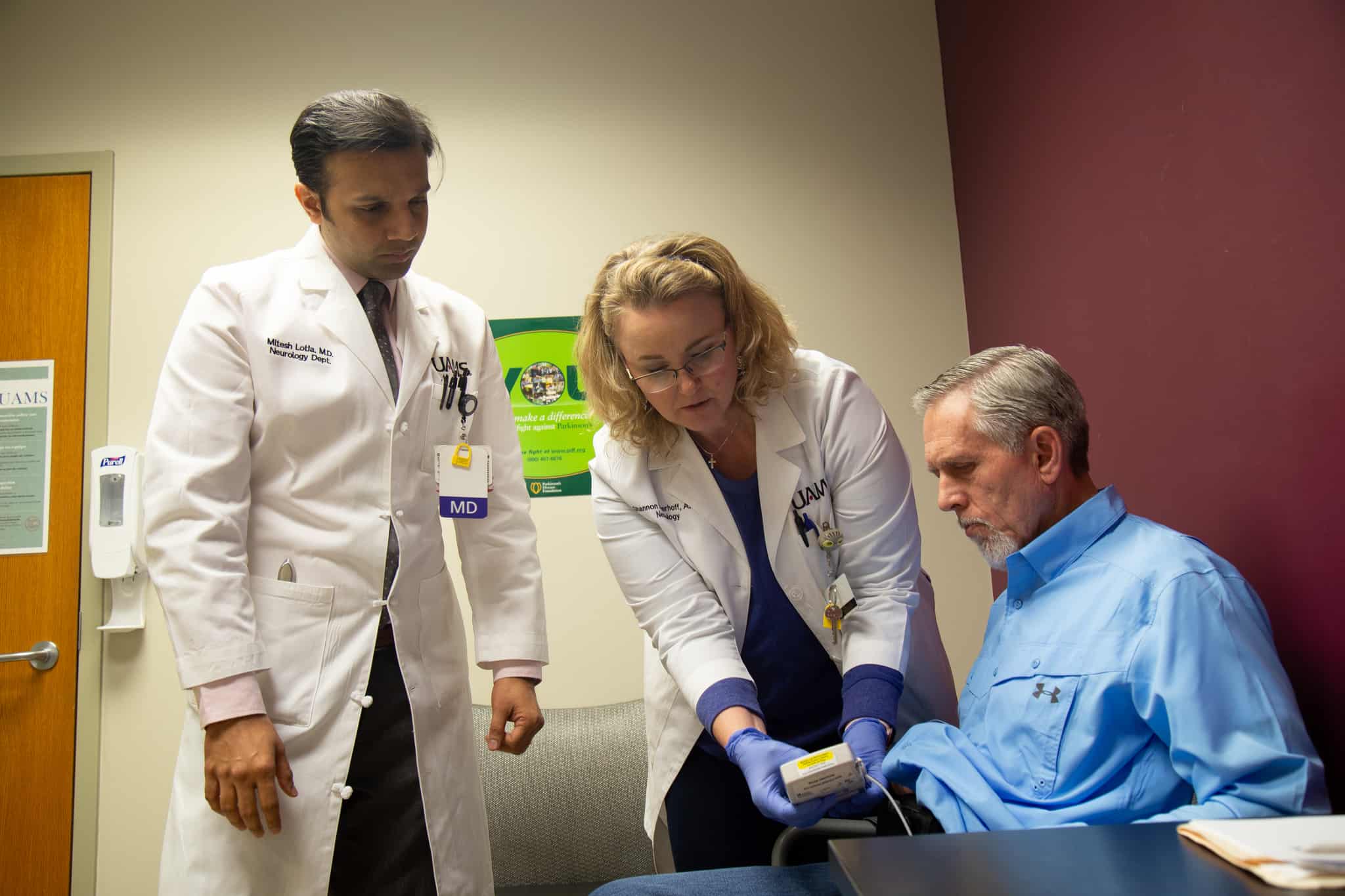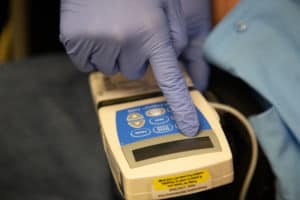New Treatment for Parkinson’s Patients Improves Drug’s Effectiveness
| He no longer feels comfortable climbing ladders, but Mark Avra says there is plenty of work to be done on the ground. Avra is a builder and was diagnosed with Parkinson’s in 2008.
“I had two houses going at once and had to have extra help to finish them,” Avra said. “I realized then I didn’t need to be on ladders.”
Avra said he’d had a hard time finding satisfying treatment until he came to UAMS.
Mitesh Lotia, M.D., is a neurologist who sees patients in the movement disorder clinic at the UAMS Jackson T. Stephens Spine & Neurosciences Institute. Avra, he says, was a good candidate for a new treatment that has proven helpful for patients with persistent motor symptoms.
Carbidopa-levodopa is the most effective medication treatment used for the motor symptoms of Parkinson’s. But as the disease progresses, the medication wears off in between doses and the symptoms return or causes excessive involuntary movements.
“When that happens, it becomes more challenging to treat,” Lotia said. “So we have to either adjust the medication or use advanced therapies such as a combination of medications or consider deep brain stimulation. But not all patients can get this brain surgery, so that’s where Duopa comes in.”
Avra was one of the first few patients in Arkansas to receive the Duopa pump. Duopa is carbidopa-levodopa in a gel form. It’s administered to the patient using a small infusion pump that delivers the medication slowly and consistently throughout the day. This way the body doesn’t receive as large a dose as it would if it were taken by mouth. At night, Avra disconnects the cartridge containing the medication. The next morning, he replaces it with a new one when he starts his day. Lotia programs the de
vice based on each patient’s need.
Recent studies have shown that Duopa, which was FDA approved in 2015, reduces the fluctuations by at least two hours or more in most patients.
The Duopa has worked well for him so far and has allowed him to become more active. He attends boxing classes twice a week that are pretty strenuous.
“It’s really fast. You have to move from station to station. It ends up being a good workout,” Avra said.
His upper body strength is increasing, too. Before Avra started going to the classes, he was only able to do a few pushups. Now he can do several.
“It gives me hope and that feels good,” he said.
The fifth annual Parkinson’s Symposium is April 7 at UAMS. It’s a great opportunity for patients and their family members to learn more about Parkinson’s, new treatment options, clinical trials and participate in activities like chair yoga.


